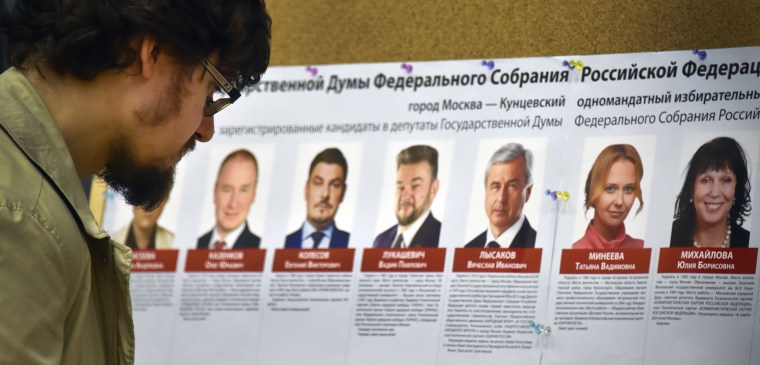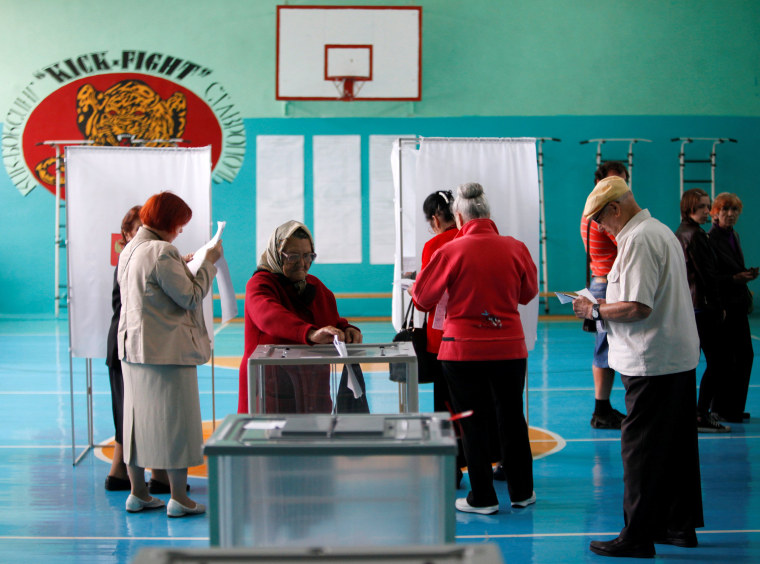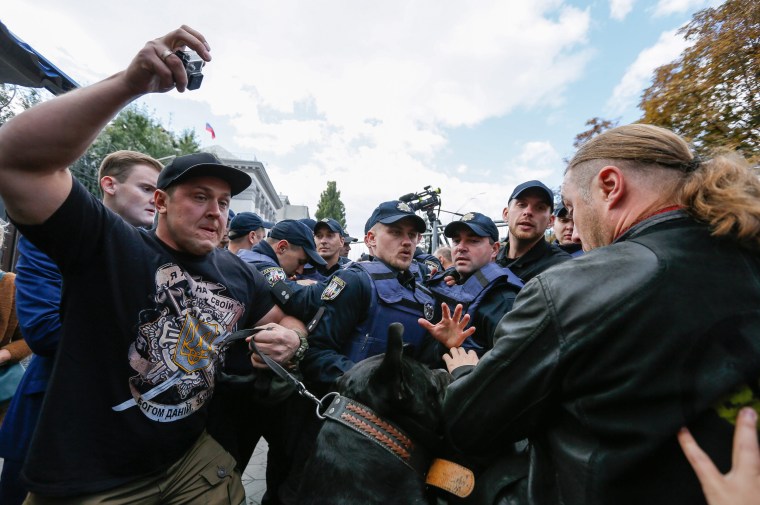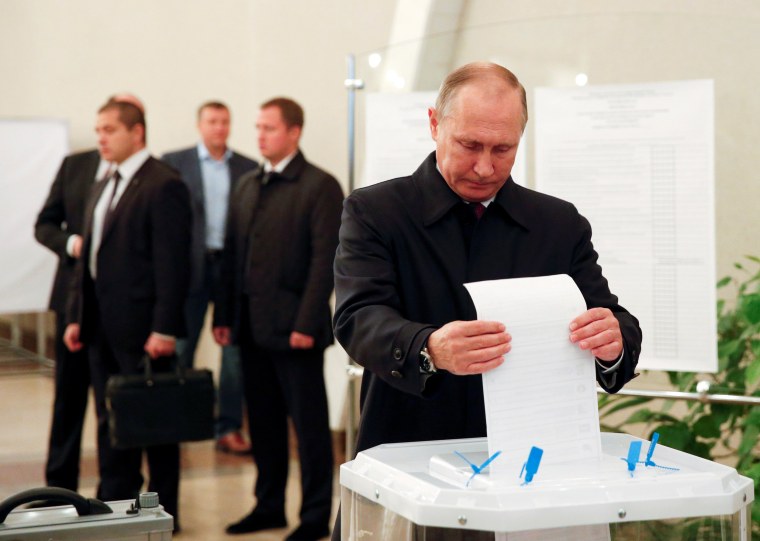MOSCOW — Vladimir Putin's United Russia party is widely expected to tighten its grip on power during parliamentary elections being held on Sunday.

Russian voters' 2011 trip to the ballot box was plagued by mass fraud, according to Western observers. Hillary Clinton, who was secretary of state at the time, called that election “neither free nor fair” and it triggered weeks of protests.
Here are three ways the Kremlin makes sure the country's opposition — such as Yabloko or PARNAS, the party of slain reformer Boris Nemtsov — remains firmly on the fringes of power.
Weeding out candidates
Opposition candidates can simply be kicked out of the race — and this is happening a lot.
“The focus has shifted from fraud to candidate bans,” a Russian political consultant who is involved in the current election cycle told NBC News. He spoke on the condition of anonymity because he is not authorized to speak to the press.

Only 14 of Russia's 74 political parties have made it onto the ballot. Of 204 self-nominating candidates, just 23 were allowed to run, according to Russia's Central Election Commission.
The prime exclusion tool is signature collecting. Small parties and self-nominating candidates have to compile thousands of signatures to get on the ballots, but election authorities can — and do — strike off signatures as fake over typos or even misplaced commas.
“Signature gathering is a major tool of restricting access,” said Ekaterina Schulmann, a political scientist at Moscow's prestigious RANEPA university. "It allows them to weed out anyone at will.”
Unfair advantage
Opposition parties allege that the state apparatus, which by law should remain neutral, often interferes with electioneering.
A grassroots map of campaign violations managed by electoral watchdog Golos lists 1,500-plus complaints this election cycle. Of those, over 900 concern the “administrative resource” — i.e. authorities' support of their preferred candidates.
The OSCE, a pan-European security organization whose duties include election monitoring, reported 650 violation complaints as of mid-August in a Sept. 2 report.
"I'm getting letters from all over the place," Vladimir Ryzhkov, a candidate with the opposition Yabloko party, said on his Facebook earlier this month. "Directors force [staff] to go to the ballots on the 18th and vote [United Russia] and its candidates. [They ] then take photos of the ballot and send to the boss.”
According to Golos' Grigory Melkonyants, police often disperse opposition political rallies or meetings, and state-employed street cleaners tear down campaign posters.

At the same time, pro-Kremlin candidates routinely host meetings on state-owned premises without paying for it from campaign funds, while state employees are forced to attend candidate meetings, he added.
Campaign staff for Dmitry Gudkov, Yabloko candidate in northwestern Moscow, posted several videos of street cleaners posting campaign ads for Gudkov's pro-Kremlin rival Gennady Onishchenko.
United Russia got more media coverage than the next seven parties combined since mid-March, according to an extensive study by Golos published on Monday. And only 3 percent of these reports across all platforms, from TV to popular blogs, were negative, the study found.
"Federal, and especially regional media, which are the main source of information for the public, are heavily dependent on the state for funding," Melkonyants said.
According to a Levada poll from July, TV is the main source of info for 86 percent of the nation. All of Russia's nationwide channels in Russia are either state-controlled or explicitly pro-government.
The Central Election Commission, United Russia and the Interior Ministry did not return requests for comment for this story.
Adapting laws to suit political aims
No two elections in Russia's post-Soviet history have been held under the same rules. This year sees the return of so-called single-member constituencies, which will account for half of the parliament, or Duma.
In single-member districts, the race is between individuals, not parties. That allows United Russia candidates to stand as independents but they'll later join Putin's colleagues in the Duma, according to Grigory Melkonyants of electoral watchdog Golos.
Support for Putin's party has been falling — but it remains popular.
A poll by the independent Levada Center conducted in late August suggested United Russia was backed by 50 percent of likely voters — down from 65 percent in January. None of the three leading anti-Putin parties scored above 2 percent.
Because ballot boxes were stuffed during the 2011 election, experts were not ruling out the possibility of similar corruption this weekend.
"If any vote rigging takes place, it will likely be the work of the regional and local officials eager to show their effectiveness and zeal to Moscow," said Schulmann, the political scientist. “The system can win without it."
